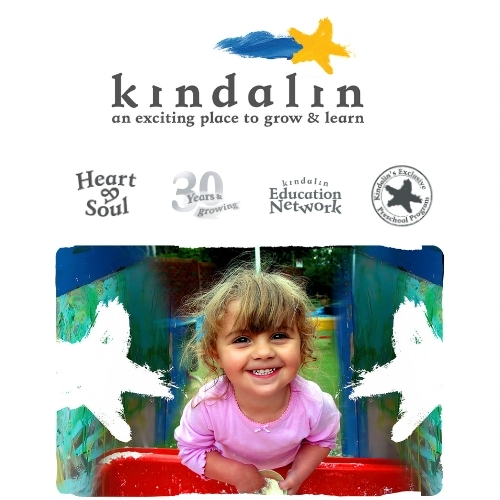We often read about building resilience in our children. But what is it? At the simplest level resilience means being able to cope with adversity, trauma or stress. Becoming a parent, I quickly learnt that the empathetic mothering part of me would prefer to live in a world where my child did not have to experience any distress! However, as a psychologist, I know that allowing our children to learn how to tolerate distress is just as important as teaching them to read and write.
Because like it or not, stress is part of life. Babies and toddlers may not experience too much stress, but by preschool, children begin to learn that life doesn’t always go their way. Sometimes you can’t be the special one. Sometimes you won’t be picked. It is a fallacy that life is fair. It’s not. Situations can be challenging, friends can be mean. Best friends can stop being best friends. And the lessons continue throughout life – you can fail at tests, you may not get picked for a team even if you try hard. You may get dumped by a boyfriend or girlfriend, struggle financially, go through a marriage break up, lose a job or heartbreakingly lose a child.
So while I’m grateful that my children often experience positive emotions such as happiness, pride and joy, I also want them to be able to manage the difficult emotions such as sadness, grief, frustration and anger. Because all these emotions make up our lives, and although I cannot predict their future, like all parents, I want to equip them to cope with life. To be equipped to achieve success, but also able to handle whatever challenges come their way.
So, although I wish it was otherwise, I know the road to resilience is likely to involve considerable emotional distress. Because just as children don’t learn to read without practice, neither will they become resilient without experiencing adversity. Resilience is not a trait that people either have or do not have, but involves behaviours, thoughts and actions that are learned.
If we want to teach resilience, opportunity is all around. Events such as other children not sharing, not being invited to a classmate’s party, basic teasing, dealing with forgetting homework, making mistakes, getting into trouble, forgetting a lunch box, losing a shoe, being late to school or not having the thing that “all my friends” have can all be opportunities to teach resilience! These experiences are adversities that bring with them the opportunity to teach our children how to manage stressful situations.
What should we be teaching?
As parents, events allow us the opportunity to model skills. The research suggests these five parenting strategies may help build resilience.
1. Avoid turning small events into a crisis
If we as parents allow ourselves to become crazy over minor things, then it is likely our children will see small situations as big problems. It’s more helpful if we frame adversity as challenges that can be solved. Doing so allows children to learn to be adaptable and able to learn from challenging experiences. An optimistic outlook teaches children to expect that good things will happen in their life. Teach them to imagine the things they want, rather than focusing on the things they fear. If we frame situations as threatening, our children are more likely to be negatively affected. How do you as a parent handle adversity? How do you handle it when you can’t get a car park, or when your child loses their comfort blanket, or when they don’t get picked for something? How do you model managing disappointment or frustration?
2. Teach your child to keep things in perspective
Keeping things in perspective is hard when you have a developing brain, and brains finish developing sometime after age 20! Abstract reasoning begins around age 6, and does not fully develop until much later in the teenage years. This means as parents we can help our children by encouraging them to look at situations from other perspectives, and other angles. We may need to help them find new solutions, or understand the bigger picture. It’s important to stop our children blowing events out of proportion. For example, they may not have achieved an academic award at school, but we can remind them that they are still be a great big brother at home, a wonderful friend and someone who tries hard. Self-worth is more than achievement. Success is more than winning, and can also be about having a go. Performance in a dance comp, sports competition, or academic test does not define a child, and should not become a way to define their overall happiness or life satisfaction
3. Teach your child self-care
Self-compassion and self-care are important. Be a great role model and teach your child the importance of making time to eat properly, exercise and rest. Make sure your child has time for fun. Children need “down time” to relax. Today’s children can be busy, and it’s important to make sure that your child isn’t over-scheduled. Demonstrating that you take care of yourself and make time for your own fun will help your child stay balanced. Getting enough sleep and having a healthy lifestyle will help your child cope with challenges.
4. Teach your child to manage change
Change is a part of life and change can be scary. Although sticking to routines and familiar things can be comforting to children, (especially younger children), research shows being flexible and able to cope with change is important. Talk often about change, and look for the delicate mid-ground that lies between overwhelmed and over-prepared. That mid-ground can allow your child the opportunity to practice handling situations that are unfamiliar or to solve problems without preparation. Help your child develop the confidence to solve problems, to make decisions, and to trust their own instincts – even if they get it wrong. This type of learning helps build resilience. Look for opportunities for self-discovery. Children often learn something about themselves and may find that they have grown in some respect as a result of difficult situations. For example, it can be challenging at the beginning of a school year to find yourself in a new class without your friends, but also empowering to finally make new friends, and build a bigger social circle. Sometimes there are unexpected gifts in adversity.
5. Teach your child that they have choices and control
We can choose how we think and how we act, even when we can’t control events. For example, we can’t control the rain, but we can control whether we choose to use a raincoat or umbrella, or choose to be cold and wet and a victim of the rain. Developing an internal locus of control – a belief that we can problem solve situations is a factor in resilience building. Children with an external locus of control tend to believe that luck, chance, fate or external forces will determine their life. Accepting there are some circumstances that cannot be changed (for example, having a teacher they don’t like) can help children focus on the things that they can control (I can choose to enjoy learning, even if I don’t like this teacher’s way of talking). Before you step in and solve a problem (as an external force), and if it is safe to do so, take a long moment to allow your child time and space to solve their own problem.
If you are concerned about your child’s resilience or worried that they are not coping socially, academically or in daily life, do seek help from your GP, School or a Psychologist. Resilience is something that can be taught, and early intervention can help build healthy foundations for mental health.























